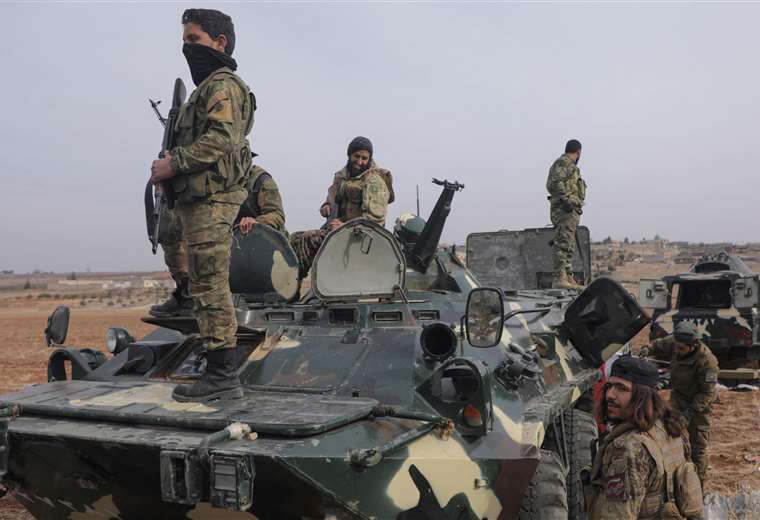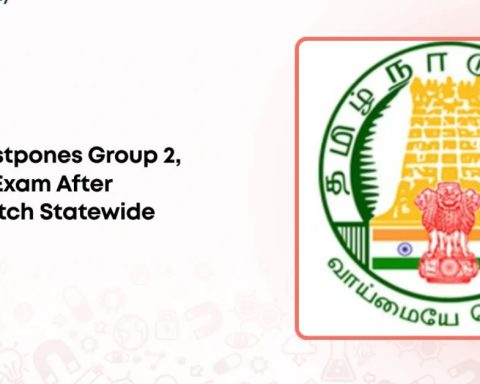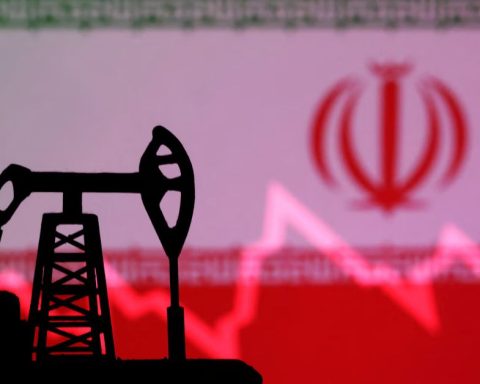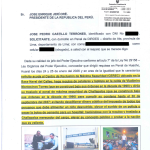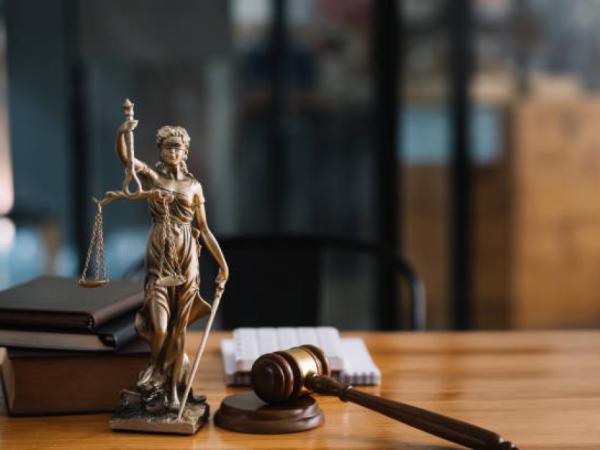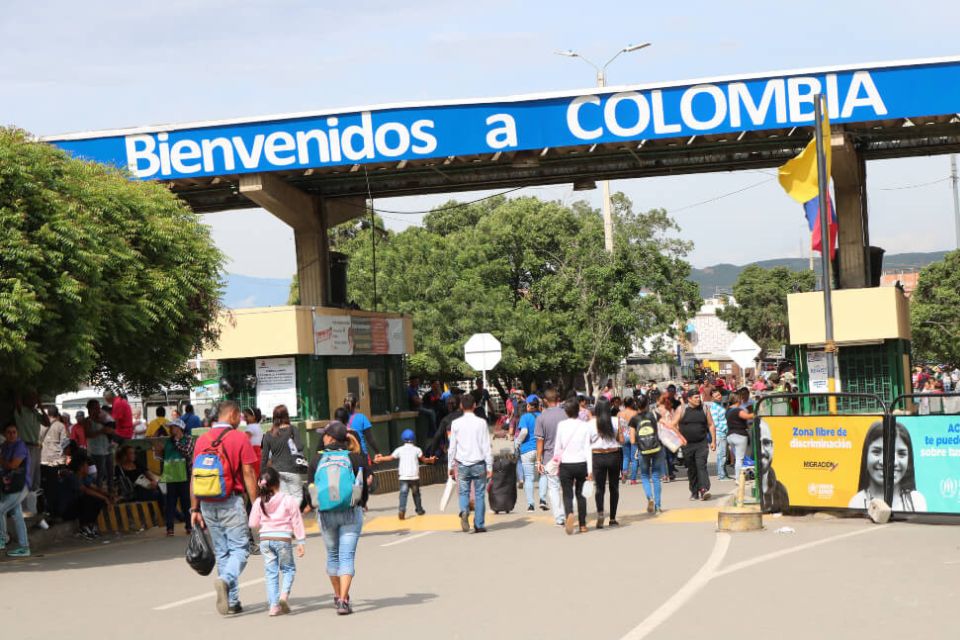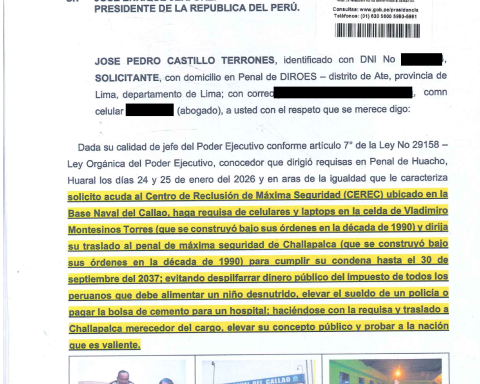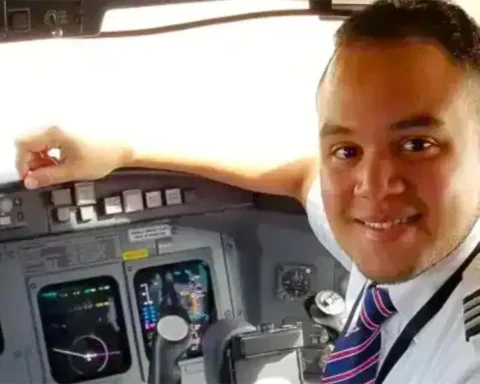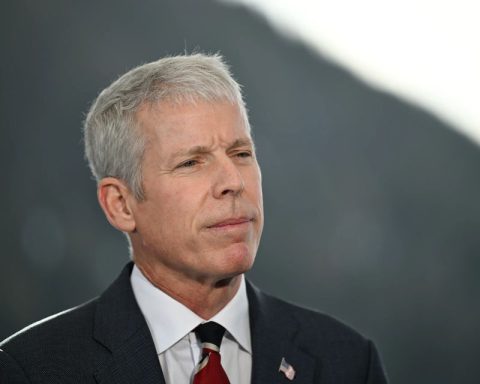December 7, 2024, 11:42 PM
December 7, 2024, 11:42 PM
The advance has been lightning-fast and has now reached the gates of the Syrian capital, Damascus.
In just one week, the various Syrian rebel forces have managed to take control of Aleppo and Hama, in the north of the country, and Deraa, in the south, while fighting to enter the strategic enclave of Homs, which links the capital with the north and the Mediterranean coast.
The objective is to surround Damascus, which would be “falling suburb by suburb,” as US officials confirmed to CBS, the BBC’s partner network.
Images that have been verified by the BBC of a crowd tearing down a statue of Hafed el Assadfather of the current president, in the peripheral neighborhood of Jarama, about 5 kilometers from the center of the Syrian capital. In another video, also verified, a group of people destroy a Syrian flag in Moadamyeh, just south of Damascus.
The rapid advance of the insurgent groups, which has caused the regime’s defenses to crumble, has caused the official Syrian agency SANA to come out to deny that President Bashar Al Assad has abandoned Damascus.
According to the Syrian Interior Ministry, the army has established a “very strong” military cordon around Damascus. Minister Mohamed al Rahmun assured on state television that “no one will be able to penetrate it.”
But the tension in the capital is palpable.
The streets are empty, most of the shops have closed and certain basic products are becoming scarce because citizens are stocking up in anticipation of the fighting reaching Damascus.
Many Syrians from the Shiite Alawite community, from which President Al Assad’s family comes, have fled to coastal areas, a stronghold of the regime, according to the BBC’s Middle East correspondent LinaSinjab.
On the other hand, while the fundamentalist insurgent group Hayat Tahrir al Shams (HTS, Levant Liberation Organization) advances from the north of the country, after taking Aleppo and Hama, and fights to take control of Homs, the kurdish troops They have taken control of almost the entire east and have reached Deir Ezzor.
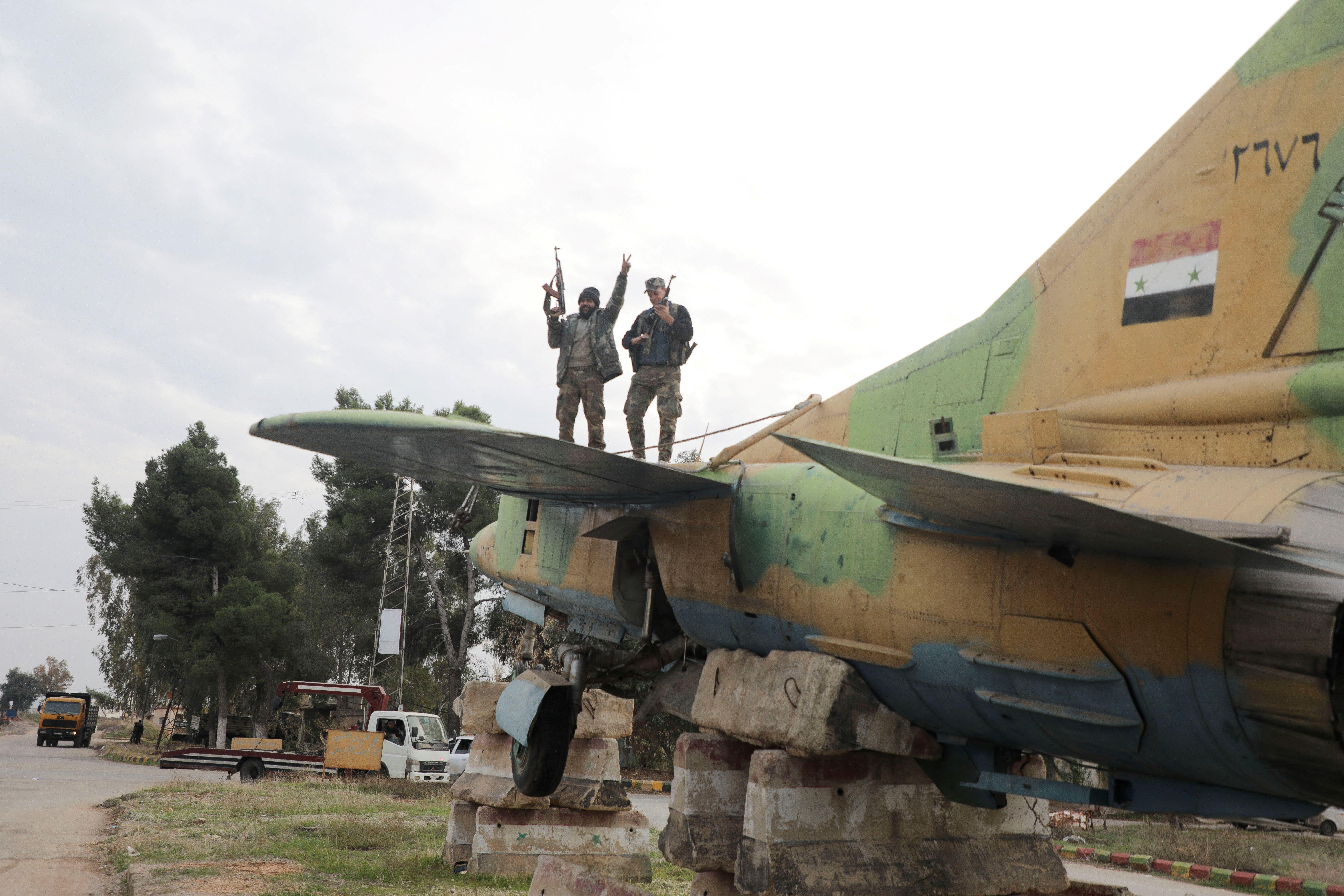
In the south, local rebel factions have managed to control the Deraa region in just 24 hours.
According to the Reuters news agency, rebel sources claim to have reached an agreement for the army to withdraw and its officers to have safe passage to Damascus, about 100 km away.
Meanwhile, several Western nations have asked their citizens to leave the country or take all possible precautions against what may happen.
popular uprising
The symbolism of the fall of Deraa is not minor: the city was the cradle of peaceful pro-democracy protests which in 2011 were carried out to try to overthrow the Bashar al Assad regime, and whose violent repression lit the fuse of a civil war that has been bleeding the country for 13 years.
It is estimated that half a million people have died since then.
The Syrians who then rose up against the totalitarian government within the framework of the Arab Spring and who have been harshly repressed since then, are now seeing in the dazzling advance of the rebels an opportunity to take to the streets again.
While the images that came from Syria in the first week of the insurgent advance were of armed men dressed in military clothing advancing through the cities and towns they had just taken, what we see now is very different.
Increasingly, videos on the ground show unarmed citizens attacking statues of the regime or gathering to celebrate the arrival of the rebelsexplains Paul Brown of the BBC verification service.
The rebels also appear to be close to the infamous Sednaya prison, which Amnesty International described in 2017 as a “human slaughterhouse” in a report claiming that between 5,000 and 13,000 people were secretly tortured and executed during the first 5 years. of war.
The prison is located about 30 kilometers north of Damascus.
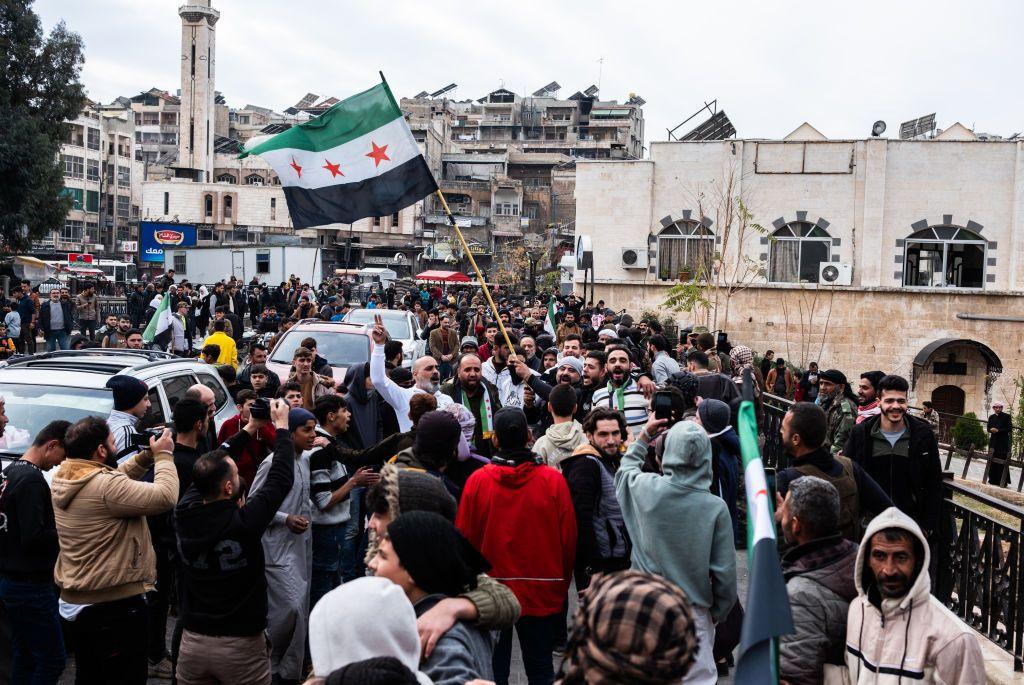
The main allies of the Syrian regime, Hezbollah, Iran and Russia, who in the past came to its aid, today find themselves in a very different situation, and the insurgents have known how to take advantage of the opportunity.
Al Assad was able to change the course of war in the past thanks to the formidable support of the Russian air force, Iranian advisors and Hezbollah fighters.
But the Lebanese Shiite militia is in low numbers, greatly weakened by the war against Israel, with whom it has just signed a ceasefire agreement.
Russia and Iran, which have supplied weapons to the Syrian regime for all these years, find themselves in a very different situation today, with Moscow immersed in the war in Ukraine and Tehran distraught by the weakening of its ally Hezbollah and its confrontation with Israel.
Moscow has a naval base in the Syrian coastal city of Tartus, and its air force has carried out bombing raids in recent days to try to stop the rebels, without success.
Now it is not clear if they still have time to intercede for the Al Assad regime, besieged on all sides.
Furthermore, the Syrian army, demoralized, underpaid and exhausted after years of fighting, is unable – and partly unwilling – to stop the rebels, according to the BBC’s correspondent in the region, Hugo Bachega.
In some areas, soldiers appear to be deserting or abandoning their positions, contributing to the spectacular progress of the offensive.
Some 2,000 Syrian soldiers would have crossed into Iraq, apparently in coordination with Damascus, a security source assured the BBC.
Bashar al Assad has been in power since 2000. Before him, his father, Hafez, ruled for 29 years and, much like his son, with an iron fist. “The end of Assad’s government may not be a distant reality,” says Bachega.
Earthquake in the Middle East
Today Syria is divided into four different sections, controlled by the Assad regime or by various armed groups and unilaterally declared entities with different ideologies and loyalties.
Control of each part of Syria has changed significantly since the start of the war.
But the advance of the Syrian insurgents is also changing the entire Middle East chessboard, analyzes BBC Security correspondent Frank Gardner.
“Who could have foreseen, 14 months ago, that the Hamas-led incursion into southern Israel on October 7, 2023 would have such far-reaching consequences? Because what is happening today in Syria has repercussions not only for the countries on its borders, but even beyond the Middle East“Gardner points out.
If the rebels maintain their advantage and finally succeed in overthrowing the Assad regime, Russia will also suffer a strategic setback.
Iran may also lose out in this situation. Aside from its Lebanese ally Hezbollah, Iran’s main partner in the Middle East has been the Syrian Assad regime. If it were to fall, Iran’s power, already in decline, would be seriously undermined.
The foreign ministers of Russia, Iran and Turkey, meeting today in Qatar within the framework of the Doha Forum, have called for an “immediate cessation” of the fighting in Syria.
Although Tehran and Moscow have been a pillar of the Syrian regime, Türkiye has supported different rebel groups. The three have participated since 2017 in what is known as the “Astana process”, a dialogue to find a political solution to the Syrian war.
From Qatar, Russian Foreign Minister Sergei Lavrov assured that the three countries expressed their support for “dialogue between the government and the legitimate opposition.”
Lavrov also said it is inadmissible to allow a group he described as terrorist to take over Syria.

Subscribe here to our new newsletter to receive a selection of the best content of the week every Friday.
And remember that you can receive notifications in our app. Download the latest version and activate them.
